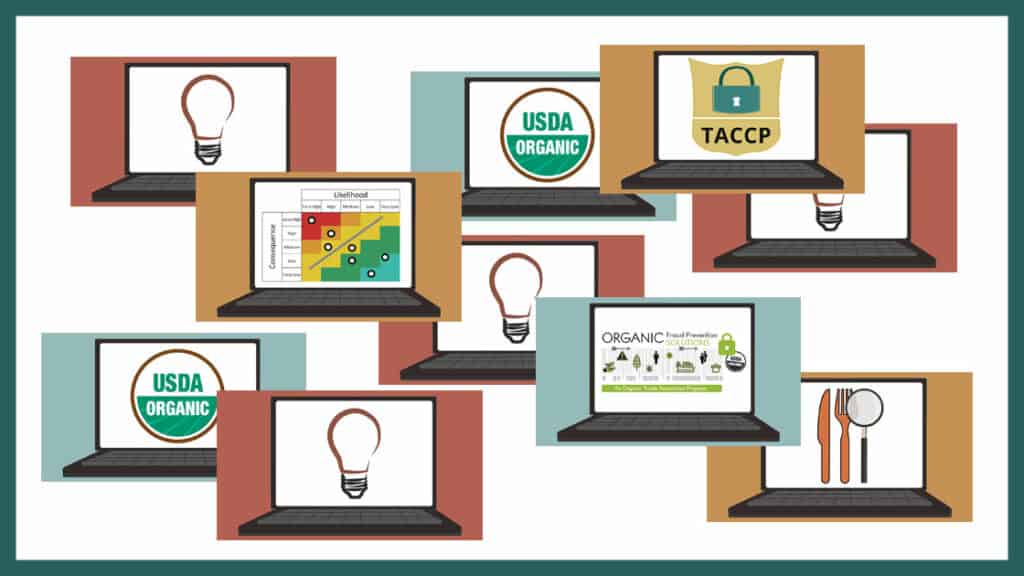Whether you are new to food fraud prevention or have already completed all the MOOC programs, this content update is a good time to refresh your education and training. The content is always free, so please share it with anyone in your company, industry, or suppliers.
We just completed a major content and functionality update of all our free Massive Open Online Course (MOOC) programs. The Food Fraud Prevention MOOC Series started ten years ago in February 2013. The first course offered– still the first course in the series – is the Food Fraud Prevention Overview MOOC.
From the start, the content has always been free and available to anyone with an internet connection.
Expanding – not Changing – Content
It is interesting and important to note that the original, foundational concepts are still valid. If you built your program on that foundation, you are just expanding and not changing your focus. While updating the MOOC content, we found the need to go deeper into almost all of the topics. When thinking back over the years, the deeper dive is logical since, as time goes by, food fraud prevention strategies have matured and deepened. The deeper content has led to this expansion to be delivered in approximately forty hours of video lectures.
The courses in the Food Fraud Prevention Academy include:
Core Training Programs:
- Food Fraud Prevention Overview MOOC (Offered continuously since February 2013)
- Food Fraud Vulnerability Assessment & Prevention Strategy (VACCP) MOOC
- <NEW> Food Fraud Prevention: Supply Chain Management & Procurement MOOC
- Food Fraud Prevention Audit Guide MOOC
Specialized Training Programs:
- Food Fraud & Enterprise Risk Management (ERM) MOOC
- <NEW> Food Fraud Prevention: Advanced Criminology MOOC
- Food Defense Threat Audit Guide MOOC
- Developing an Organic Fraud Prevention Plan (with Organic Trade Association- OTA) MOOC
Capacity- and Capability-Building
The first food fraud prevention MOOC programs were designed to help capacity building (e.g., helping to train more people on the topic) and capability (e.g., helping to train those people to have a deeper and more thorough understanding). The primary audience is food fraud, prevention managers, and team members. Building on that focus, the programs were also developed to support internal auditors. Finally, while achieving those two goals, the MOOC programs provided a shared resource for third-party auditor and certification bodies. It was very efficient that there was an option for a common starting point of the curriculum, including terms, definitions, scopes, and the tools to meet compliance.
Recommended MOOC Training Plan
The primer document on ‘Overview of Food Fraud Prevention MOOC Training and Education Programs’ presents the courses with the suggested order, and recommended courses for users such as your Food Fraud Prevention team, Supply Chain Management & Procurement group, Corporate Security & Investigators, Packaging Function, and Sales and Market Managers.
Takeaway Points
- The science and sciences of food fraud prevention are constantly evolving and expanding. The type of fraud evolves, and the range of academic theories expands.
- Whether you are new to food fraud prevention – or have already completed all the MOOC programs in the past – this content update is a good time to refresh your education and training.
- As always, the food fraud prevention MOOC content is free and available online. Since the content is free, please share it with anyone in your company, industry, or suppliers.

